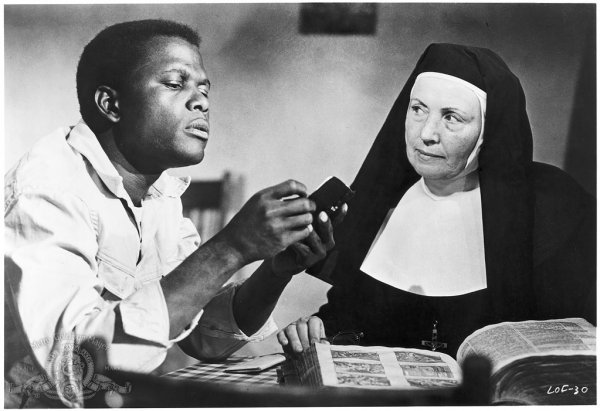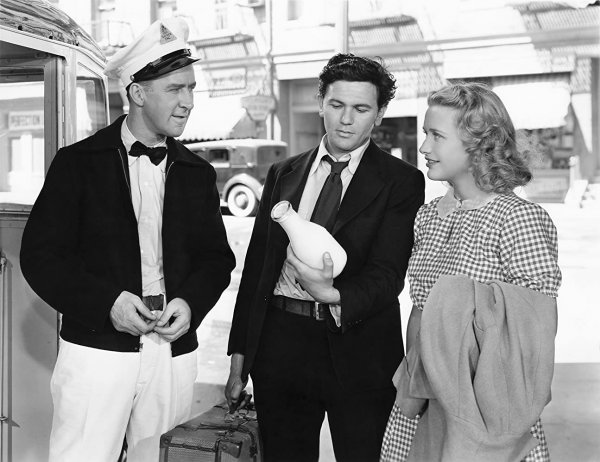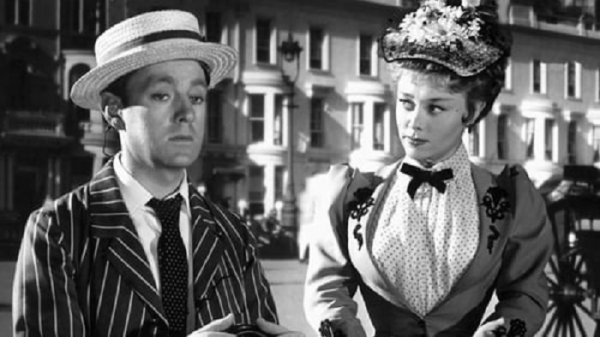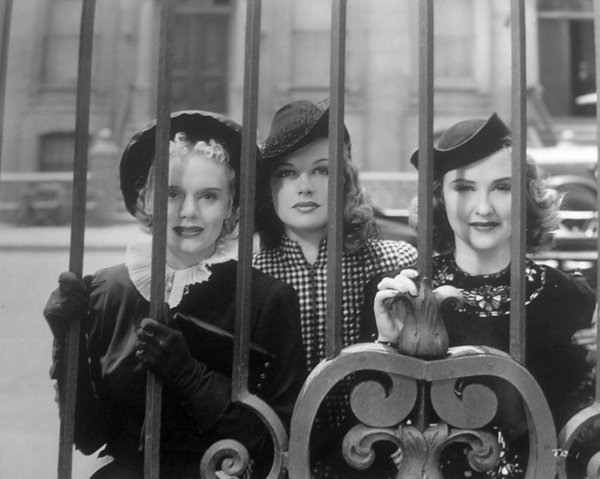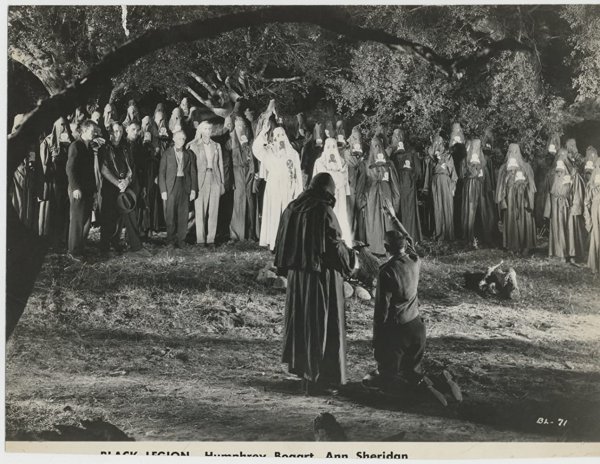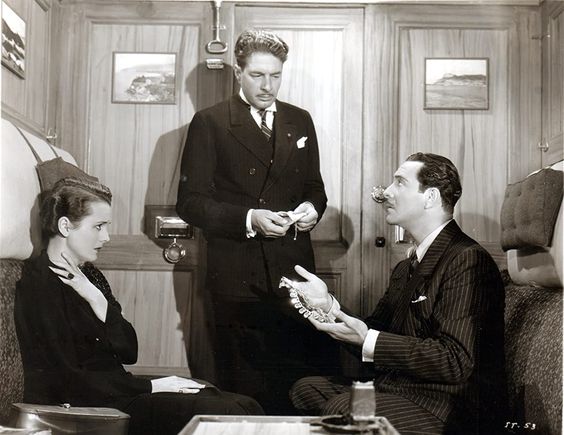- Messages
- 17,443
- Location
- New York City
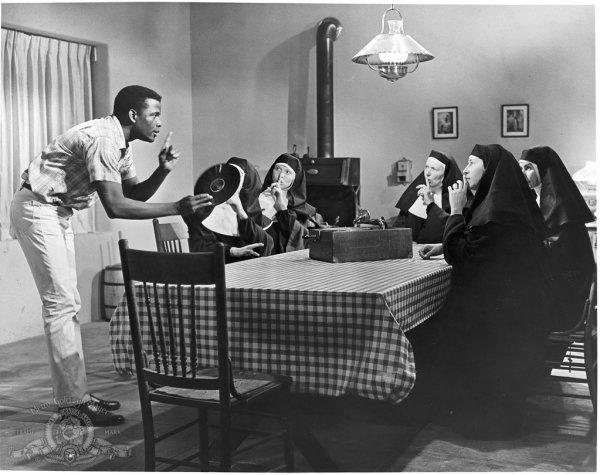
Lilies of the Field from 1963 with Sidney Poitier, Lila Skala and Stanley Adams
Two things make this gem of a movie work and work very well: subtle and charming interpersonal relationships and a honest, passionate, but not hellfire, belief in and advocacy of Christianity.
Sidney Poitier, a young black man driving cross country stops at a desert enclave of six poor East German escapee nuns (back when we were allowed to acknowledge that people risked their lives to get out of the hell of East Germany and the USSR) and, despite a language barrier owing to the head nun's (Skala) very broken English, he kinda agrees to do a days work in exchange for pay and food.
Right off, Poitier and the head nun, the "Mother," are movie-gold chemistry - they irritate each other over small things, in part, owing to the language barrier, but are also oddly intrigued by and, deep down, respectful of each other. Over time, the surface battles continue as the respect grows. Most cop-buddy movies work on the same concept, but the relationship dynamic here is one of the best ever.
Poitier's character's name is Homer Smith, but the Mother, being German, mangles it to Schmidtt and obdurately refuses to change despite Poitier's repeated efforts to correct her. The payoff comes when Poitier, exhausted from trying, in one case, refers to himself as Schmidtt just to move things along.
And while that's harmless fun, these two engage in some serious battles over his pay as she kinda cheats him - promised food yes, money no - in her effort to rope him into helping build a small chapel for the all but penniless nuns and the surrounding Catholoic community, which, currently, have to pray outside at a miles-away parking lot.
While they never really come to concrete terms, Poitier stays and works and even leaves once, in exasperation, only to come back later. Director Ralph Nelson clearly knows the magic in this tale isn't the plot, but the cross-culture interactions and the religious theme - tying in with the '60s social movement's idealized goals - of harmony and respect for all. It was a time when '60s idealism and Hollywood could still make room for - even embrace - Judeo-Christain values and beliefs.
Just seeing young, strong, black and handsome Poitier in wheat jeans and a wheat jean jacket drive six white nuns, clad head to toe in black, in his falling-apart Plymouth station wagon, to the prayer meeting's parking lot each Sunday is visual humor at its best. The poor locals - seemingly, mainly Mexicans - accept this disparate group with outward respect, but also with a few "what the heck is going on here" side-looks.
And beyond Poitier and the nuns, the movie is chocablock with awkwardly enjoyable relationships as, for example, Poitier pleasantly spars with the Mexican owner of the local cafe (Adams), while the nuns bump elbows with pretty much everyone they encounter, but no one seems to mind that much.
However, it's not all pleasant banter, as Poitier goes toe to toe with a racist (but sadly not out of line for the times) white construction company owner who believably changes a bit for the better after interacting with Poitier. While the movie would be a treat if all there was to it were these relationships, this message movie also shines as it proudly advocates for Christianty as a faith to bridge all these cultural gaps.
Stripped to its core, the story is one of East German Catholic nuns sorta hiring (really playing on his generous nature) a kind black Southern Baptist man to build a chapel for them, the local community of Mexican Catholics and, as the Mother says, for God.
And, yes, it is a belief in God, in Jesus and the unifying and uplifting passages in the Bible that hold the story and the chapel-building effort together. In one outstanding scene, Poitier and the Mother "discuss" the Bible with him desperately thumbing through his pocket edition to find supporting passages for his views while she confidently locates and reads self-supporting selections from her big-as-a-Gutenberg Bible. It is pure movie joy. (See pic below.)
As the chapel takes shape, Poitier - despite his early resistance, now sees the effort as his personal project - initially rejects the help of the locals, but then embraces it. And in a 1963 version of "it takes a village," not only do the locals bring materials and their labor, but the racist construction company owner, eventually, donates materials (trying to pass off quality material as inferior, as he doesn't want to admit how generous he's being). Heck, even the proudly self-described non-believer cafe owner shows up to work and support the chapel building.
Sure, it's too easy, but '60s idealism was naively optimistic then, as, not having been tried, it didn't yet have the baggage of mixed results and failures that followed so many of the programs initiated by the end of the '60s. And it's a movie, so you either go with it or not. When Poitier is affixing the large cross on the roof of the chapel at the end of construction, whatever your beliefs, you, like this agnostic, will be moved by what the power of faith and effort of community can accomplish.
In many ways, this is a simple movie, shot in simple black and white, with a simple plot, small cast and minimal budget. But director Ralph Nelson knew he had two powerful tools to work with - relationships and faith - and, in Lilies of the Field, he uses both of them as effectively as any director has.
Finally, for what it's worth, there's this: I haven't enjoyed a movie more in years.
